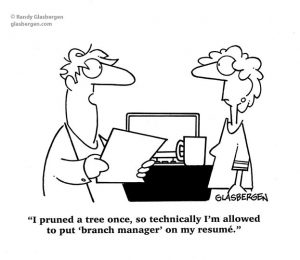When we walk into an interview, our potential employer has already read our whole life story. Every bullet point on our resumes has been put under scrutiny. To even have received an interview means that they have made the judgment about us that you could be a candidate for the job.
If you’re like me, you sound like the full package on paper. Good job experience, involvement in the community, and a captain on sports teams leads a person examining my resume to believe that they are going to meet an individual who is possibly a better candidate than someone else who doesn’t have any of those things. But then I have to hold an interview in person… It’s not to say that I don’t interview well, but there is a gap between what people picture when they read about me on paper versus how I come across in real life. I always feel like it’s somehow disappointing for the interviewer to not get exactly what they were expecting. This seems unfair though because I’m not in control of the opinions people form about me before even meeting me. 
According to our textbook, “research shows we form impressions of others within a tenth of a second, based on our first glance.”(1) So within a tenth of a second, I have failed to meet expectations. It goes on to say that “most interviewers’ decisions change very little after the first four or five minutes of an interview.” This means that I only have 5 minutes to convince them that I am everything I appear to be on paper. But is this even possible? Can one break the self-fulfilling prophecy that states that a person will perform exactly how others expect them to?
Business News Daily gives advice for when you know you’re not impressing your interviewer. It says that “a hiring manager often won’t outright tell you that you’re screwing up an interview… he or she will say it with body language.” (2) It suggests taking time to reframe/clarify what you are saying, or in this case, who I am and why I am the candidate they want. If I can discern any body language that causes me to think I’m not impressing my interviewer, I can break away from the prophecy by calmly reiterating that I am exactly who I claim to be and that that is exactly who they are looking for.
(1) Langton, N., Robbins, S. P., Judge, T. A. (n.d.). Organizational Behaviour (7th Canadian Edition), pg 46.
(2) http://www.businessnewsdaily.com/6985-save-failing-job-interview.html
Comic- http://www.glasbergen.com/tag/funny-human-resources-cartoons/
Song- https://www.youtube.com/watch?v=8gFCW3PHBws
